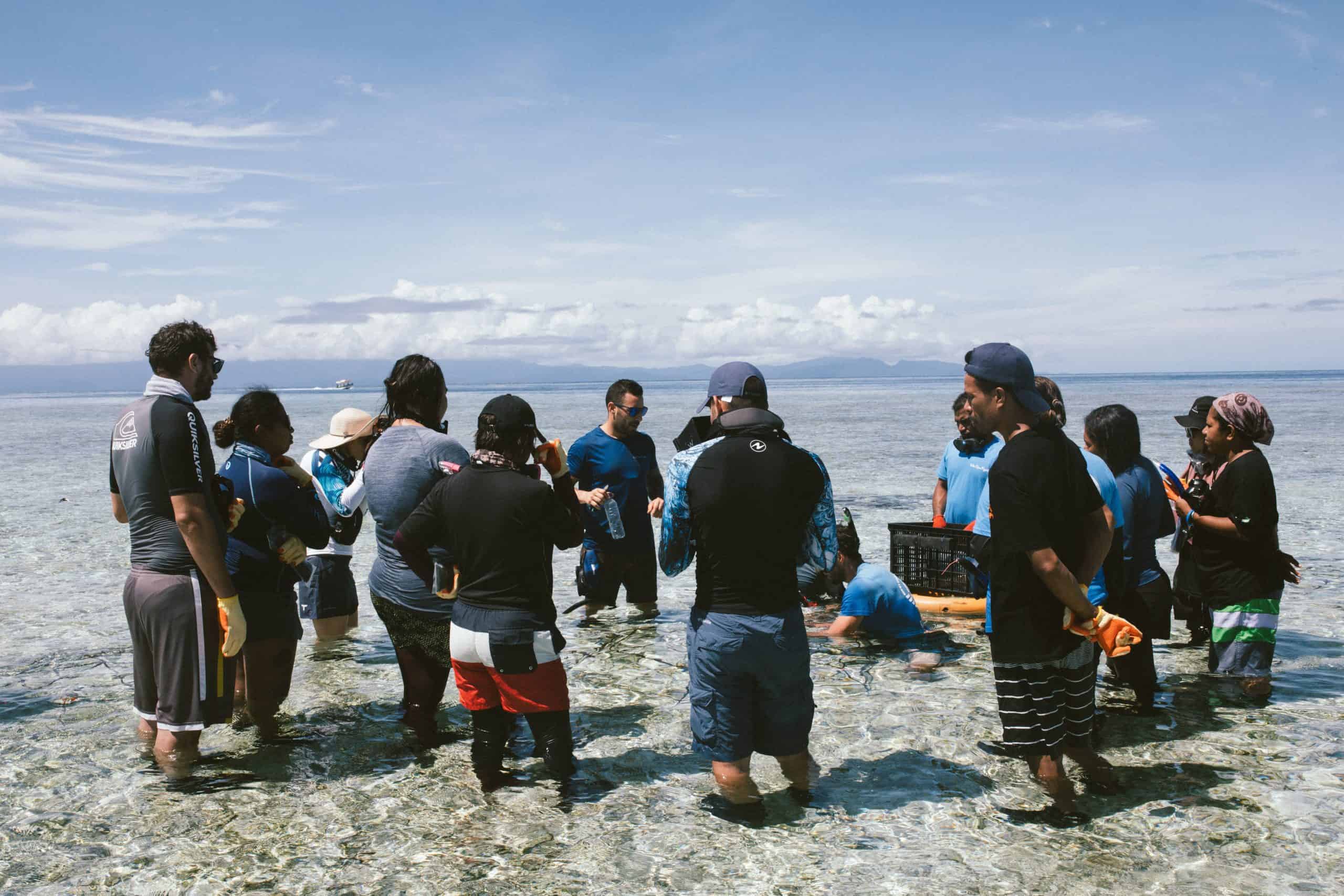Our projects
All our projects are performed in close collaboration with our local partners, with educational goals at the forefront to empower local communities. We believe involving young community members is key to the success of these projects and we hope to inspire others to action before Raja Ampat’s coral reefs are irreparably damaged.

Coral restoration
Raja Ampat has among the world’s most diverse and unique marine life on the planet. However, destructive fishing practices, careless diving and overall human disturbance is transforming large reefs into barren rubble. This makes it harder for coral to grow back and has a negative effect on the marine life. In collaboration with our local partners, we install underwater structures in targeted areas to help the coral regrow. This methodology has been tested and has amazing positive results. By doing this, we will effectively convert barren environments into thriving coral reefs within a few years.
Education & awareness
Raising awareness about the importance of marine ecosystems is essential to having a real impact in this world. With our local partners, we perform outreach activities in villages across the region every year. We discuss topics such as coral biology, coral reef ecology, species interactions, sustainable fisheries and plastic pollution. In communities with limited means, we also provide basic school materials. Our goal is to encourage children to take ownership of their local reefs and to promote a sustainable future.
Crown-of-thorns control
While the increase in tourism is providing more sustainable livelihoods to the 40,000 inhabitants of the region, it is also putting pressure on the local reefs through overexploitation, coastal development and pollution. As a consequence, the ongoing destabilization of Raja Ampat’s marine ecosystems leads to population outbreaks of the crown-of-thorns starfish (COTS), Acanthaster planci. This starfish species is native to the Indo-Pacific and feeds on fast-growing coral, which serves to maintain reef health in normal conditions. However, overfishing of their natural predators and sewage runoff leads to population outbreaks, during which COTS densities increase to unsustainable levels and prevent reefs from recovering fast enough from the predation. We perform direct controls of COTS in affected areas, which is one of the most feasible actions to effectively mitigate ongoing coral mortality and improve resilience. By doing this, local reefs will be protected from inevitable degradation and will continue to provide essential natural resources to surrounding villages.
